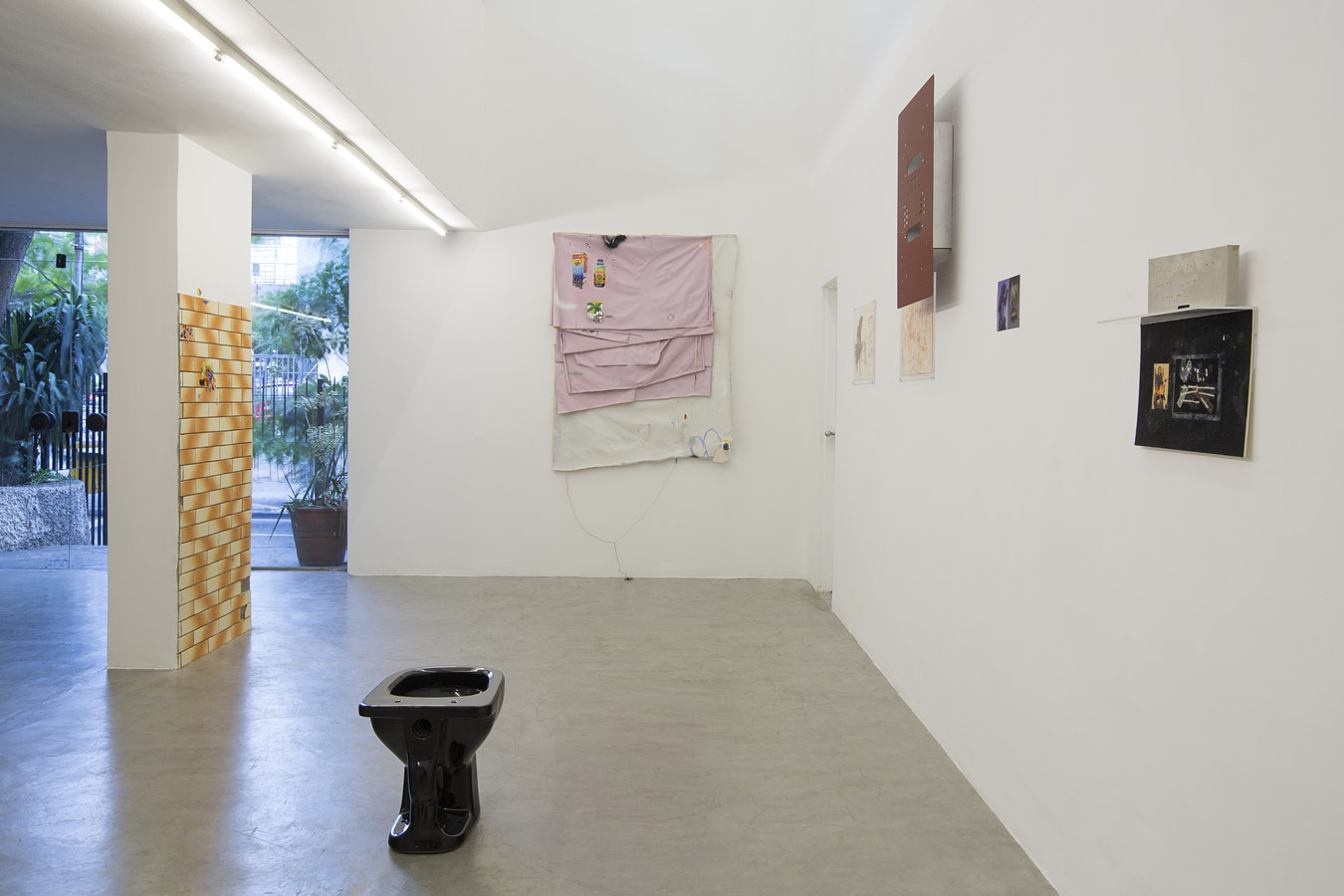
Artists: Daniel Faust, Rainer Ganahl, Marcello Grassmann, Bradley Kronz, Adriana Lara, Matthew Lutz-Kinoy, Emanuele Marcuccio, Paulo Nimer Pjota, Max Hooper Schneider, Sergei Tcherepnin, Erika Verzutti
Exhibition title: A paz entre os animais
Curated by: Michele D’Aurizio
Venue: BFA, São Paulo, Brazil
Date: November 27 - December 20, 2014
Photography: Courtesy of the artists and BFA, São Paulo
The group show “A paz entre os animais” lies on the assumption that war is what happens when language fails. The display attempts indeed at rethinking the exhibition as a scenario of dispute rather than dialogue, unsteadiness rather than systematization, deception rather than endorsement.
“A paz entre os animais” presents the work of eleven artists from different nationalities and generations: Daniel Faust (American, b. 1956), Rainer Ganahl (Austrian, b. 1961), Marcello Grassmann (Brazilian, 1925-2013), Bradley Kronz (American, b. 1986), Adriana Lara (Mexican, b. 1978), Matthew Lutz-Kinoy (American, b. 1984), Emanuele Marcuccio (Italian, b. 1987), Paulo Nimer Pjota (Brazilian, b. 1988), Max Hooper Schneider (American, b. 1982), Sergei Tcherepnin (American, b. 1981), and Erika Verzutti (Brazilian, b. 1971). For many of them a lifelong inquiry into a specific medium translates uncannily into artworks, which intimately tend towards anxiety, displacement, imbalance, and occasionally anger. They speak a plurality of languages and gathered together contribute to staging a scenario that recalls the compromised construction of the Tower of Babel.
Fragmented forms, torn pictures, clashing sounds (ref. “Unmonumental”, New Museum, New York, 2007-08) pack the exhibition. Additionally, perceptive mechanisms based on synesthesia stimulate misunderstandings and slippages of meaning. The recurring images of animals—or better, their charge of cuteness—are themselves intended to subdue the cacophony in the display: on the one hand, they stress an antithetical interpretation of the historical meaning tied to media such as collage and assemblage (ref. “L’art en guerre, France, 1938-1947”, Musée d’Art Moderne de la Ville de Paris, Paris, 2012-13); on the other, they suggest the dream of animals in harmony (ref. Isaiah 65:25: “The wolf and the lamb will feed together, and the lion will eat straw like the ox, and dust will be the serpent’s food.”)—the dream that every exhibition organizer has for a group show. Anyway, animals here echo also a bestiary, fierceness and instinctual behavior.
“A paz entre os animais” wants to be a spoiled mechanism: it wants to threaten its intrinsic stability and jeopardize its reception and so the role of its organizer (ref. Abel Ferrara, Dangerous Game (Snake Eyes), 1993.) Indeed, it highlights the clash between the exhibition project and the objecthood of the display; or better, between intellectual desire and the art industry logistics, dream and real shit.
Michele D’Aurizio





